What is Voltage?
Voltage is a very important term in electrical engineering.It is similar to force in general physics.Here this force moves some object.In electrical this force is called electromotive force which drives the electrons that is the current flow.This voltage is also called as electric pressure or potential difference or electric tension.
It is the amount of potential energy between two nodes or two points in a closed circuit.Out of these two nodes, one node has more charge and other has less charge.So the difference between the two charges is called as voltage.It is measured in terms of volts.Symbol of voltage is V (capital v).This term volt is named after an Italian scientist Alessandro Volta, who invented first battery.
It is work done to move charge between two nodes per unit charge.This voltage can be produced by static electric fields, by electromagnetic fields, by time varying magnetic fields.To measure the voltage in a closed circuit we use a voltmeter.Voltage in a closed circuit in the sense it is either from a source of energy or from stored energy or lost energy.
To make it more clear to you we can compare this voltage, current, resistance in a closed circuit to the water tank.That is a closed circuit with active and passive elements is analogous to a water tank.In this water pressure is compared to voltage, water flow is analogous to current, the amount of water is analogous to charge.If more water in the tank then more charge and more pressure then more electric pressure.
Mathematical Representation of Voltage:
Let us consider two points A and B.The voltage at A be VA and voltage at B be VB.Now voltage is the potential difference between the points A and B.
Classification of Voltages:
Voltages are classified into two types.They are
1) Constant voltage (DC) or DC voltage
2) Alternating voltage (AC) or AC voltage
* DC voltage is represented in electrical circuits as follows
* Batteries and cells are commonly used sources of DC voltage.
* DC voltages will have a constant magnitude at any time.
* DC voltage magnitude is independent of time.
It can be seen from the below figure
* AC voltage is represented as shown in below figure
* AC voltage magnitude varies with time always.
It can be seen from below figure
* Synchronous generators, Induction generators are sources of AC voltage.
* The rate at which voltage waveform varies is called frequency.Generally used frequencies are 50 Hz (in India ) and 60 Hz (in US ).
Voltage Sources Representations :
Voltage is time variant and time invariant.In this two cases independent voltages are represented as follows:
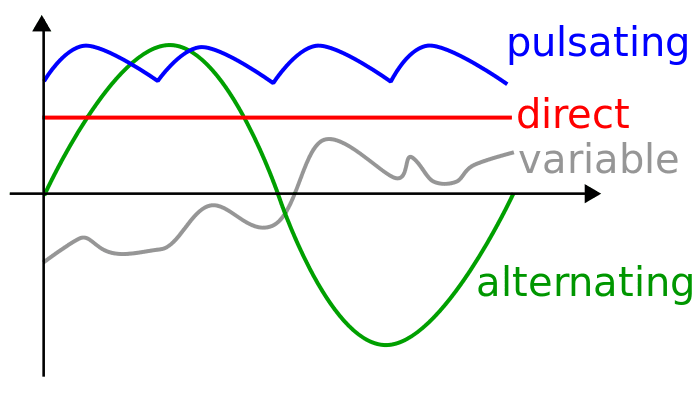
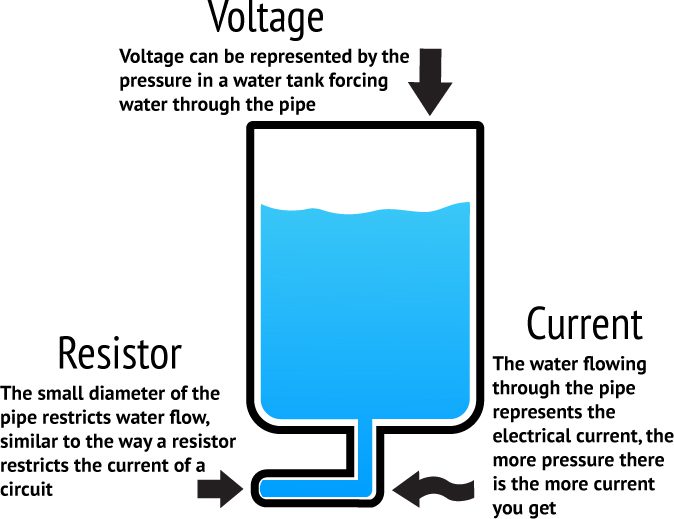


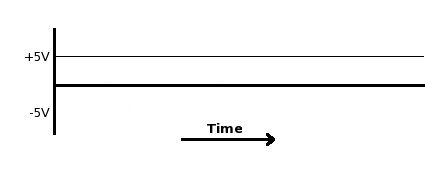

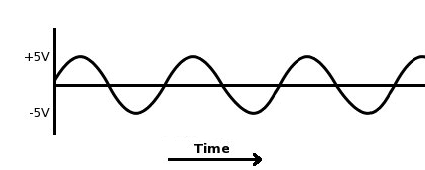
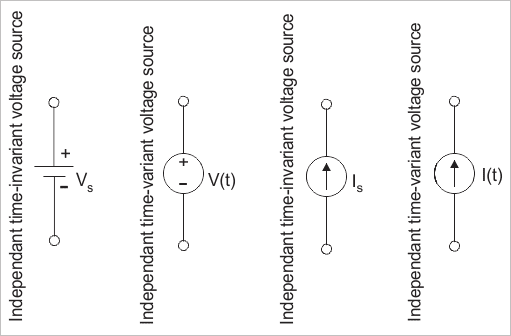
Voltage is such a fascinating concept! The comparison with water pressure really helps to visualize how it works in electrical circuits. It’s incredible to think how tiny electrons are driven by this force, powering almost everything we use daily. The explanation of DC and AC voltages is clear, especially with how the article breaks down their characteristics. Alessandro Volta’s contribution, leading to the creation of the first battery, truly changed the world! ⚡